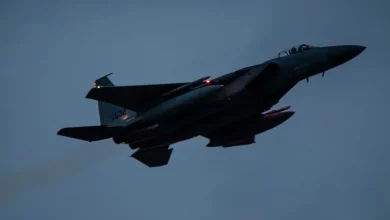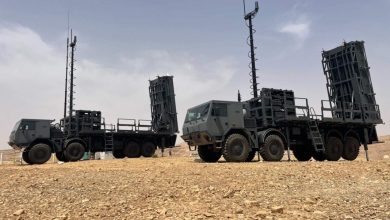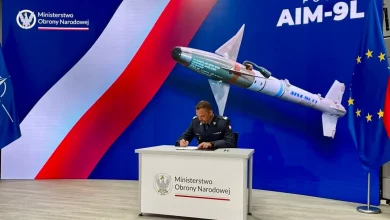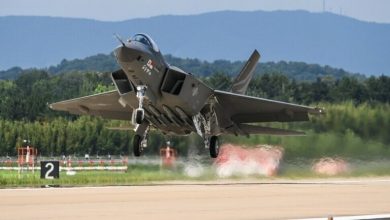Germany will deploy troops for first time since World War II
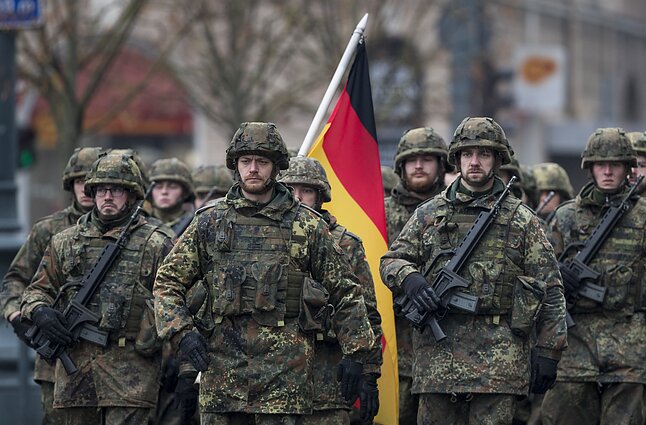
A new agreement between Germany and Lithuania will lead to German troops’ first permanent foreign deployment since World War II.
The announcement was made Monday in Lithuania, where Defense Minister Arvydas Anusauskas met with his German counterpart, Boris Pistorius, to outline a multiyear “Roadmap Action Plan” involving approximately 4,800 permanently stationed German soldiers. Both officials called the move a historical moment not just for their nations but for NATO as well.
German troops, including those with families, will be stationed in the Lithuanian cities of Kaunas and Vilnius beginning in 2024, with most troops deployed in 2025 and 2026 and full-operation capability expected by 2027. In turn, Lithuania has committed to providing all necessary civilian and military infrastructure.
The agreement was originally announced in June, but no timeline was presented at that time.
“The German commitment of permanently stationing a brigade in Lithuania is a historical step for both Germany and Lithuania,” Anusauskas said Monday, according to a press release. “We are turning over to a page of even deeper strategic partnership.”
He went on: “The German Brigade will significantly increase our defensive potential and enhance NATO deterrence and collective defense. The Roadmap signed today lays out in detail the track we and Germany will take to implement it.”
Pistorius said the move was a positive step in defense relations, considering the lengthy war between Ukraine and Russia, the latter of which borders Lithuania. Belarus, a close ally of Russia, also borders Lithuania.
“Germany understands clearly the new state of affairs in security politics: we are taking the role of leadership and responsibility in the [NATO] Alliance as we deploy a combat brigade in Lithuania,” Pistorius said in the release. “We will ensure reliable deterrence and we will be ready to [defend] NATO. We are sending a clear signal with this step to those who present a threat to peace and security in Europe.”
Newsweek reached out to both nations’ defense ministries and NATO via email for comment.
The plan was formulated by experts within the two defense ministries. Most of the German troops will be stationed in the territory of Rūdninkai military training ground, while the rest will be deployed in the town of Rukla, where some 1,000 allied troops already reside.
Logistical hubs will cater to the new brigade, which will include three maneuver battalions in addition to combat support and supply units formed by new and existing units.
The 203rd Panzer Battalion, based in North Rhine-Westphalia, and the 122nd Armored Infantry Battalion, based in Bavaria, will be moved to Lithuania. Lithuania’s enhanced Forward Presence Battalion Battle Group will be transformed into a multinational battalion to become “an integral part of the brigade,” the release said.
Lithuanian lawmaker Laurynas Kasciunas, head of the parliamentary National Security and Defense Committee, said the country will allocate 0.3 percent of its gross domestic product over the next several years to help fund the deployment and to build housing, training grounds and other infrastructure for the German troops.
Taxes will likely have to be raised to accommodate this plan, he said.
Pistorius compared the agreement to the stationing of allied forces in West Germany during the Cold War to defend Western Europe in the event of a Soviet attack, according to Reuters.
In January, Germany was pressured by the United States and other Western allies to provide Leopard 2 tanks to Ukraine for its defense efforts against Russian forces.
“The eastern flank has now moved to the east, and it’s the duty of Germany to protect it,” Pistorius said Monday during a joint press conference, Reuters reported.
He said the German soldiers and their families coming to Lithuania will have “attractive conditions,” including German-language schools, kindergartens, housing and flight connections.
“The speed of the project clearly shows that Germany understood the new security reality,” he added.
Anusauskas made it clear that Russia’s aggression in Ukraine played a pivotal part in this new plan.
“We should expect not only good scenarios but also the very worst scenarios,” he said. “So we must be ready…. Russia remains the main threat to us and NATO.”


